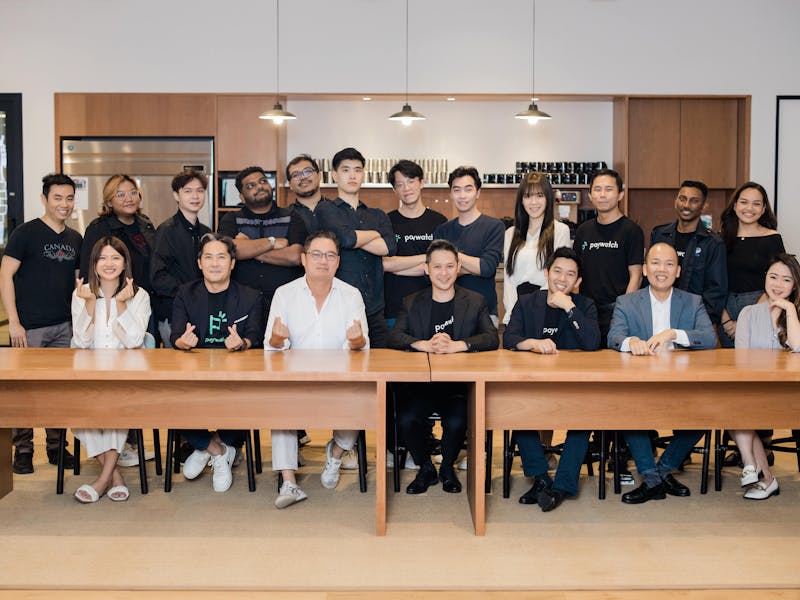Paywatch
Wednesday, February 8, 2023
A help out, not a hand out

AS OUR working lifestyles continue to evolve and change, so are financial services and technology.
Malaysian inflation has risen by 3.4% since June of 2021, with the highest increases recorded in the food and non- alcoholic beverage (6.1%) and transport (5.4%) categories. In fact, as mentioned previously, the country’s consumer price index has risen by 47.7% since 2010.
More concerningly, we should expect a shrinking middle income group and upper income group alongside a growing lower income group, with what was B40 now becoming B60.
While one-off monetary aids were given to lower income communities, this type of assistance is simply temporary relief and lacks the sustainability for Malaysians to overcome the cost of inflation.
Following this, certain financial trends have cropped up. Some of these you may have heard of like micro-loans and buy-now-pay-later (BNPL) solutions. Currently, the newest player in Malaysia is earned wage access (EWA) - with players like Paywatch coming into the foray.
With these challenges ahead, financial literacy and inclusion play a big part in rebuilding a healthy middle income group and building sustainable financial habits.
Enabling financial inclusion
EWA, also known as pay-on-demand, is one particular area of alternative, inclusive financing that is growing in relevance.
There’s a fundamental disconnect between our consumption patterns of goods and services and how we are paid in the current day and age.
While employees still get compensated in fixed payroll cycles, there’s a growing demand for real-time, on-demand financial systems - especially for segments of the population who don’t have a significant amount of disposable income or savings at a time where the cost of living is rising faster than basic wages.
Having started out in the fast-moving consumer goods (FMCG) industry before transitioning to consumer finance, Paywatch chief executive officer Richard Kim believes that EWA can prevent high-interest and even predatory money lending by offering an alternative to how employees are paid, creating an inclusive environment for lower-income employees and the unbanked.
“I founded Paywatch because when I was running my own business, I had young part-time staffers who came to me to ask for an advance on their wages. They didn’t ask for a full month’s worth of wages, just for the days they had already worked for,” said Kim.
Cash flow issues have always been the prevalent issue among the low- income workforce, which had been exacerbated by the pandemic.
Kim noted his interaction with young part-time staffers drove him to navigate this problem, by reducing the financial burden on his low-income workforce, which eventually led him to found Paywatch.
“Our focus group found that this segment too were ineligible for bank loans or credit cards which could drive them to seek out other methods to get the funds they need in emergencies.”
Given the current economic climate as well, EWA can transform the traditional payroll system in Malaysia by enabling businesses and corporations to provide employees with access to secure funding, without compromising their careers or finances.
He noted that there we also have a generation of low-income or gig workers who are not only supporting themselves but also their families due to the lack of welfare systems to help our ageing population.
“Through our partnerships with banks like Bank Negara Malaysia, we’re able to provide an EWA solution that’s interest-free for users and only charges a nominal withdrawal fee - akin to an ATM fee.
“This would help support the low- income workforce in Asia on a day- to-day basis with early access to their earned wages,” he emphasised.
An alternative that works
Setting aside a part of your salary to cover payments from the past month is not new - many of us use credit cards to cover expenses upfront that we then pay with our salary the following month.
The difference is that many of these workers don’t even have access to financial aid like credit cards and bank loans. More importantly, they shouldn’t be burdened with high interest rates that perpetuate their debt.
Industries that rely primarily on a minimum wage workforce or gig workers were initially drawn to EWA solutions due to pervasive cash flow issues among their employees.
“90% of employees in Malaysia find themselves in situations where they needed emergency funds, but had no access to it.
“This has led them to borrowing from various lenders - we’ve seen this last year with the TnG personal microloan (with interest rates as high as 36%) and withdrawals from the Employees Provident Fund (EPF) retirement savings.
“With solutions like Paywatch, Malaysians can access up to half of their salary earlier as a financial buffer during these emergencies, instead of digging into their retirement savings or even borrowing from loan sharks.
“Our goal is to provide safer financial solutions for the underbanked - EWA is just one way to do that,” said Kim.
Paywatch was designed to be a solution for cash flow issues between paychecks to be used only in case of emergencies. However, it’s still important for employers to educate their employees on the correct use of EWA.
That said, Paywatch does have safeguards in place to prevent frivolous overspending. For instance, there’s a 50% withdrawal limit and fee cap to ensure workers don’t withdraw too much of their earnings.
The reality of the situation is that in cases of emergency, many lower-income workers don’t have the resources to cover unexpected expenses out-of- pocket.
By integrating EWA, it gives the workforce a way to withdraw money they have already earned, to use if needed, safeguarding them from further incurring debt from high-interest repayments down the line.
Written by Chow Zhi En, The Star.
Share
HR
Edukasi
The future of HR is flexible.
Let us help you now.
Ready to better recruitment, engagement and retention with zero disruption to your existing payroll? Let’s work together
